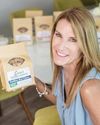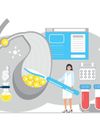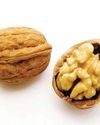
Sorry your file was not uploaded. It may be the wrong filetype. We only allow JPG filetypes.
For years, we’ve believed it’s all in our genes—that a predetermined and unalterable genetic makeup would set us up for obesity, disease, and premature aging. Now, emerging research is showing that’s not the case. What we’re learning: Almost all of our genes may be influenced by the foods we eat. In the words of Deepak Chopra and Rudolph E. Tanzi in Super Genes (Harmony, 2015), “You’re not just the genes you were born with. You’re the user and controller of your genes, the author of your biological story. No prospect in self-care is more exciting.”
It starts with DNA, the genetic code that determines all the characteristics of a living thing. DNA is packaged into chromosomes that contain all of our genes—sections of DNA that include the instructions for making the proteins our bodies need to function. But DNA isn’t a rigid, indelible code, as was once thought. Instead, new studies are finding that nutrients in our food profoundly affect gene expression—the process by which information from a gene’s DNA sequence is translated into a substance, like a protein, that’s used in a cell’s structure or function.
This story is from the July 2020 edition of Better Nutrition.
Start your 7-day Magzter GOLD free trial to access thousands of curated premium stories, and 8,500+ magazines and newspapers.
Already a subscriber ? Sign In
This story is from the July 2020 edition of Better Nutrition.
Start your 7-day Magzter GOLD free trial to access thousands of curated premium stories, and 8,500+ magazines and newspapers.
Already a subscriber? Sign In

Strike A Healing Chord
Soothe your mind, body, and spirit with three simple sound therapy techniques for self-care.

Laura's Gourmet Granola
If you’re tired of granola that’s more candy than health food, chef and entrepreneur Laura Briscoe’s offerings are just what you’ve been looking for.

News Bites
Caffeine, Peanuts, CoQ10, and Iron Deficiency.

The Overlooked Keys to a Healthy Gallbladder
Keep your bile thin and free-flowing by focusing on supportive foods, supplements, and physical activity.

Go Nutty This Year
This über-healthy alternative to traditional lattes features homemadewalnut “mylk,” along with antioxidant-rich green tea and berries.

The Three Stages of Infection
What you need before, during and after an illness, and why you need different fixes for each stage.
Taming the Flames
How to beat back chronic inflammation and protect yourself from related disease.

Deconstructing the Flexitarian Diet
How being a part-time vegan can make you healthier.

Brain Regain
How one senior used a leptin-focused diet (high-fat, no carbs) to recover from a cognitive injury, reconnect with his family, and reclaim his health.

Healthy Aging— Head To Toe
Science-backed supplements to protect all your parts.